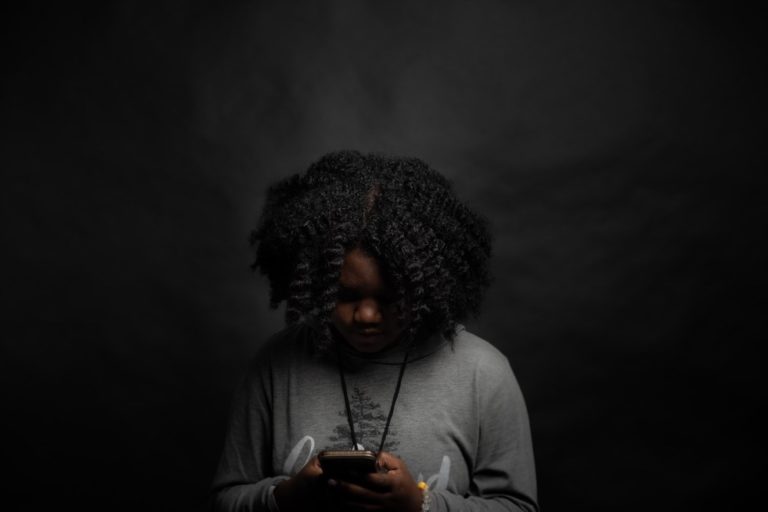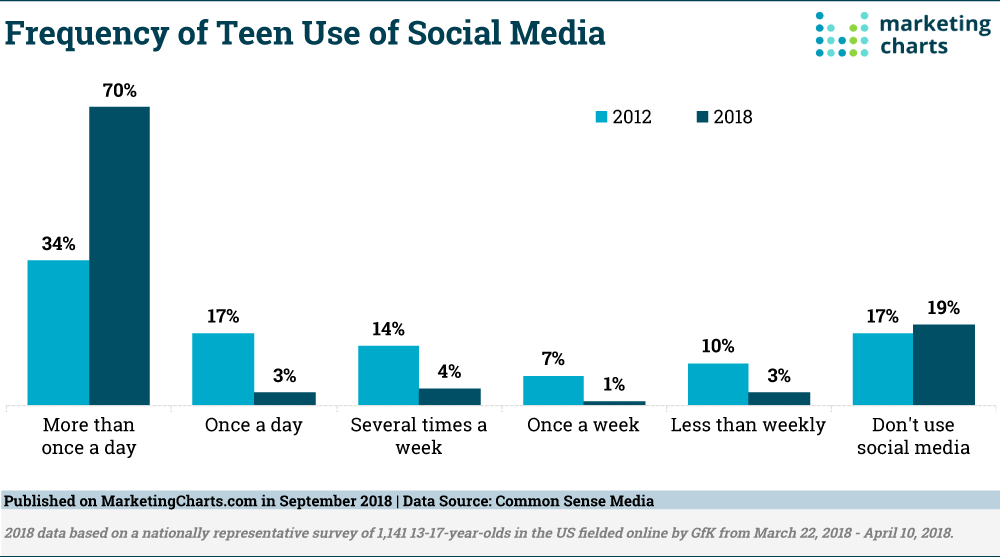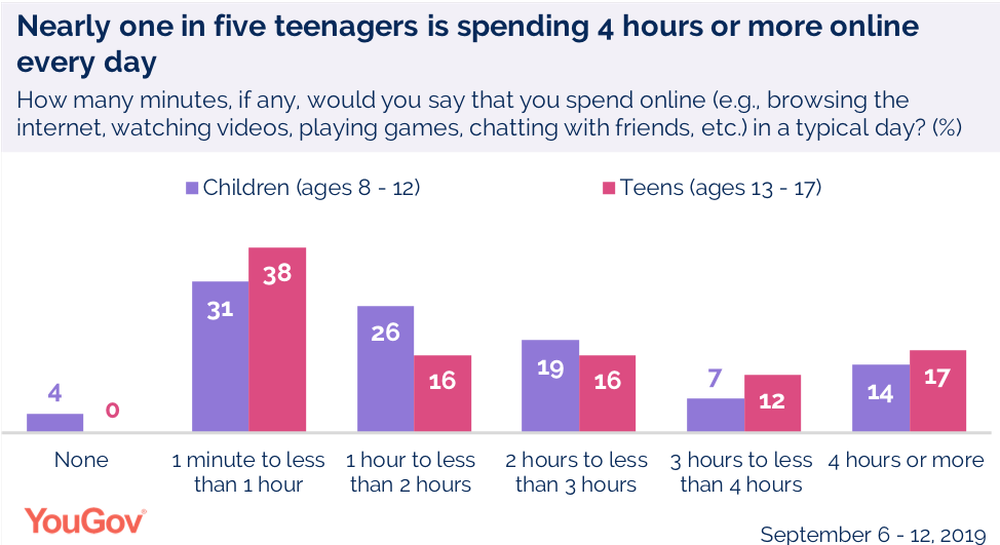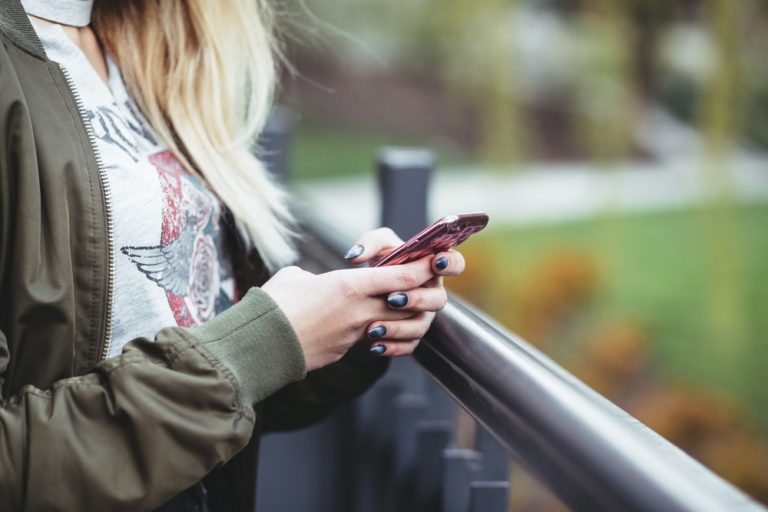How Does Social Media Affect Teens? What parents need to know.


By Antoine G Larosiliere
Now that I have two teens, I was curious to find out how social media affects teens?
A 2019 study found that “12 to 15 year old American teens who spent more than three hours a day using social media might be exposed to a higher risk for mental health problems.” That’s alarming to read if you’re a parent of a teengager and makes us want to investigate further. If you’re a concerned parent like I am and want to know; how does social media affect teens? Social media affects teens brain activity, and can turn them into jealousI, envious, social inept, anxious, depressed, people who are sleep deprived, feel unsafe, have poor body images, and run into constant misunderstandings. Now let’s take a closer look at what the research shows.

It affects brain activity.
Most of us, if not all of us want to be liked, what’s important is how we go about getting those likes. Teens are just finding out who they are, what they like and don’t like; which makes them very impressionable. They are influenced to like pictures and videos, regardless of the nature of the content, based on the high numbers of likes that picture or video gets. It’s referred to as the “herd” mentality; like what everyone else likes and you’ll be cool too. According to the UCLA Brain Mapping Center, “receiving a high number of likes on photos showed increased activity in the reward center of the brain of teens ages 13-18.”
“The more we’re fed these images the more we begin to feel jealous and envious.”
It makes them Jealous and envious.
When you’re scrolling through social media apps the types of images are repetitive. People are posting the best version of themselves, which most of the time it’s not who they are on a day to day basis. So many people seem glamorous, funny, interesting, adventurous, and beautiful; it’s hard not to want to be like them. The more we’re fed these images the more we begin to feel jealous and envious. This envy causes them to compare their lives to others. Teens begin to dislike their own loves, while being jealous of other people’s lives. What teens fail to realize is that they’re not seeing the whole truth, only the “highlight reels.” People purposely keep their boring or difficult experiences off of social media.

They can become socially inept.
If all your free time is spent on social media, it will begin to stunt your social etiquette. Humans need face to face interactions to be able to foster healthy relationships. If teens are not having these real interactions, but instead they’re on social media; they will eventually struggle with face to face interactions. If when they are having these face to face interactions, they’re constantly checking their social media; it will have a negative affect on their friendships, and dating relationships.

It causes sleep Deprivation.
There are times when teens are over consumed with social media and it begins to affect their sleep patterns. They’ll check their social media before they go to sleep, in the middle of the night, and first thing in the morning. This interruption of their sleep pattern can cause them to be more lethargic, moody, while also affecting their grades. If a teen already has anxiety, ADD or depression issues; a lack of sleep can definitely make those issues worse. According to the Journal of Youth Studies, one-fifth of the teens between ages 12-15 said they “almost always” wake up in the middle of the night to check their social media accounts. These teens reported being tired all the time and less happy compared to others who’s sleep was not interrupted by social media.

It causes Anxiety.
According to the American Psychological Association, anxiety is an emotion characterized by feelings of tension, worried thoughts and physical changes. Teens who are greatly invested in their social media accounts will often feel anxiety. The bigger their social media following gets, the more pressure they’ll feel to respond quickly to comments, perfect pictures and videos, and create more and more content. Research has found that the bigger a teen’s social media following the more anxiety they’ll feel about producing great content and maintaining engagement.
It can cause depression.
Researchers haven’t specifically discovered a cause and effect relationship between depression and social media, but there is an association. This association shows symptoms of depression are intensified due to social media use. A decrease in engagement in social activities as well as an increase in loneliness has also been associated. According to Linda Charmaraman, a senior research scientist at the Wellesley Centers for Women and director of the Youth, Media & Wellbeing Research Lab, “ 21% of teens “felt down” about themselves after scrolling through social media.”
Another study published in Computers in Human Behavior found “people who used more than seven social media platforms had more than three times the risk of depression than people who used two or fewer sites.”
Teens can develop a poor body image.
Our society has always been image conscious and social media has made it even more of an obvious focus. The most attractive people get the most likes and shares, and everyone is jumping on the bandwagon. What that means is most people now wont create content without having makeup on, a fresh haircut, and the perfect outfit on. The people who aren’t physically fit are running to the plastic surgeon to get their tummy tucks, new breasts and butts. A University of Pittsburgh study found “those who had spent more time on social media had 2.2 times the risk of reporting eating and body image concerns, compared to their peers who spent less time on social media.” The study also showed that the participants who spent the most time on social media were 2.6 times the risk.

Teens will often run into misunderstandings.
When you’re speaking with someone face to face, there are many opportunities to communicate and express yourself without words that can make understanding clearer. You can see their facial expressions, their physical gestures and hear their tone of voice. None of which you can do through sending messages or comments through social media. This can cause many misunderstandings to occur. Many of these misunderstandings revolve around sarcasm, humor, and criticisms. A criticism may seem more harsh without hearing the tone of voice, just like a sarcastic joke may be taken more seriously.
Teens can begin to feel unsafe.
The more time teens spend on social media, the more they’re exposed to potential abuse and harassment. Everyone including teens at some point might be victimized by some form of cyberbullying. Whether it be rude or offensive comments, insulting memes or messages or cyberstalking; social media can become an unsafe place. One study shows “about 37% of young people between the ages of 12 and 17 have been bullied online, while 30% have had it happen more than once.”
Social media has become a big part of our lives, and can be a great tool if we use it safely. Another 2019 study In England found teens ages 13 to 16 that use social media more than three times a day were predicted to have poor mental health and well-being.
If you believe that social media has affected you negatively, please seek professional help or reach out to your social media provider. Also visit my YouTube channel for more insight to these topics.
Spread the word!
The Bully Experience "Daniel's Story"

Sign up for our newsletter and Read the novel For Free!
Stay updated. Sign up for our newsletter, and get the first two chapters of The Bully Experience Daniel’s Story absolutely free.